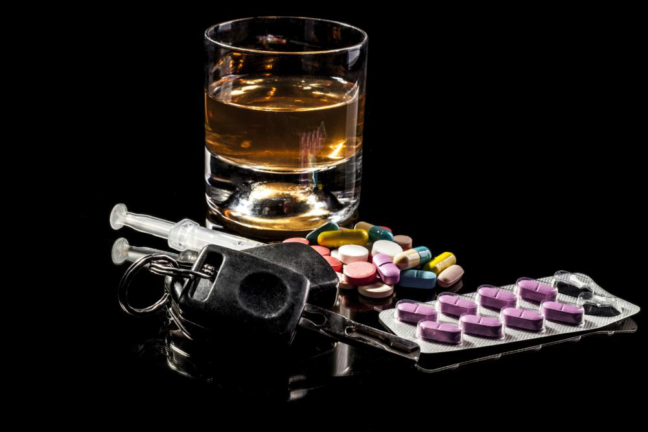DUI law is widely associated with drunk driving, but there are countless other substances that can impair your ability to operate a motor vehicle and lead to a DUI. Hence, under DUI Law, anyone who drives a vehicle after intoxication or impairment from alcohol, drugs, a combination of the two or other similar substances, can be charged with a DUI.
When we refer to drugs, they not only include illegal drugs but also legally prescribed medications and controlled substances that can substantially affect your mental and physical abilities — for instance, driving under the influence of legally prescribed muscle relaxers or medical marijuana is considered as illegal as drunk driving or driving under the influence of other illegal drugs. Hence, a prescription from a physician can’t be used as a defense for DUI in such cases.
Let’s look into substances besides alcohol that can have impairing effects and can certainly lead to a DUI:
Heroin
Heroin is shown to cause severe euphoria, drowsiness, and diminished reflexes. Under its influence, you may also experience a clouded mental state, a sensation of being disconnected and feel nauseous. After using heroin, you may not be able to follow the protocols of safe driving, such as timely stopping or turning as required.
Cocaine
Driving under the influence of cocaine is sure to get you charged with a DUI. It’s an illegal drug that not only causes dizziness, confusion, and mental disorientation, but also makes you aggressive, paranoid, and irritable. Many road rage incidents are the result of the influence of cocaine.
Marijuana
Even though it’s a legal drug in the US, you can’t operate a motor vehicle if you’re impaired due to marijuana usage. Using marijuana can cause disorientation by making you more relaxed than usual. Such a mental state delays your reaction time while driving. Induced relaxation tends to alter your perception of space and time, increasing the chances of road accidents.
More importantly, the psychoactive component of marijuana may be detectable in an individual’s urine or bloodstream for as long as 4 to 5 weeks after use. So, one has to be very careful when using marijuana.
Antidepressants
Antidepressants are prescribed medications used to treat major depressive disorders and some other conditions, including anxiety and chronic pain. Acting as sedatives, some antidepressants can cause the same degree of impairment as alcohol. As such, they come under the banner of controlled substances, making it illegal to use them and drive. Mixing antidepressants with alcohol could multiply the effects, so it should never be used with alcohol.
Sleeping Pills
The effects of sleeping pills, whether prescription-based or over-the-counter, can persist even after a full night’s sleep. To be on the safer side, consult a doctor before taking them, and try to manage with minimum possible doses. Avoid driving if you feel the slightest of effects.
Closing Thoughts
DUIs cover a large array of substances from heroin to sleeping pills. It’s never a good idea to get behind the wheel if your vision or judgment is impaired. Therefore, precautions must be taken to ensure that one doesn’t get behind the wheel of a car after ingesting or taking any of the substances mentioned above, as all these substances could lead to a DUI charge.



